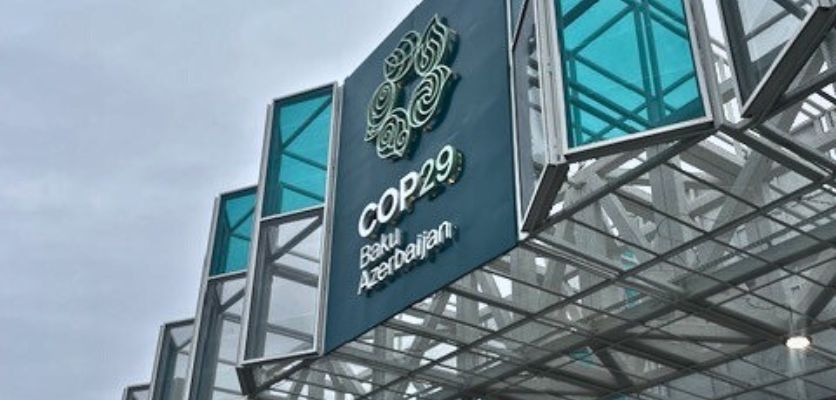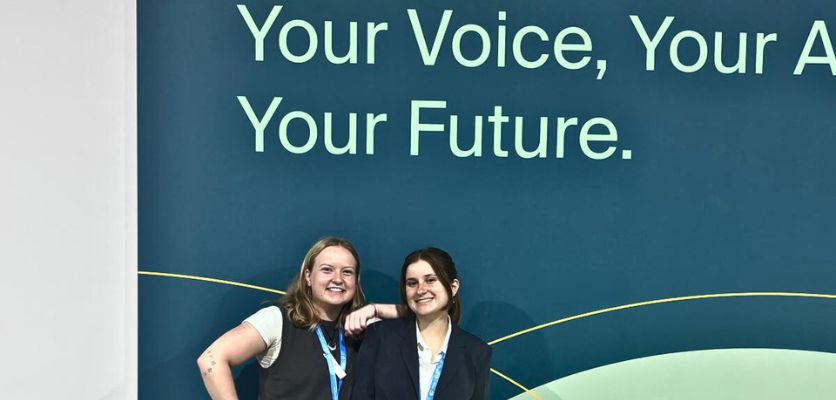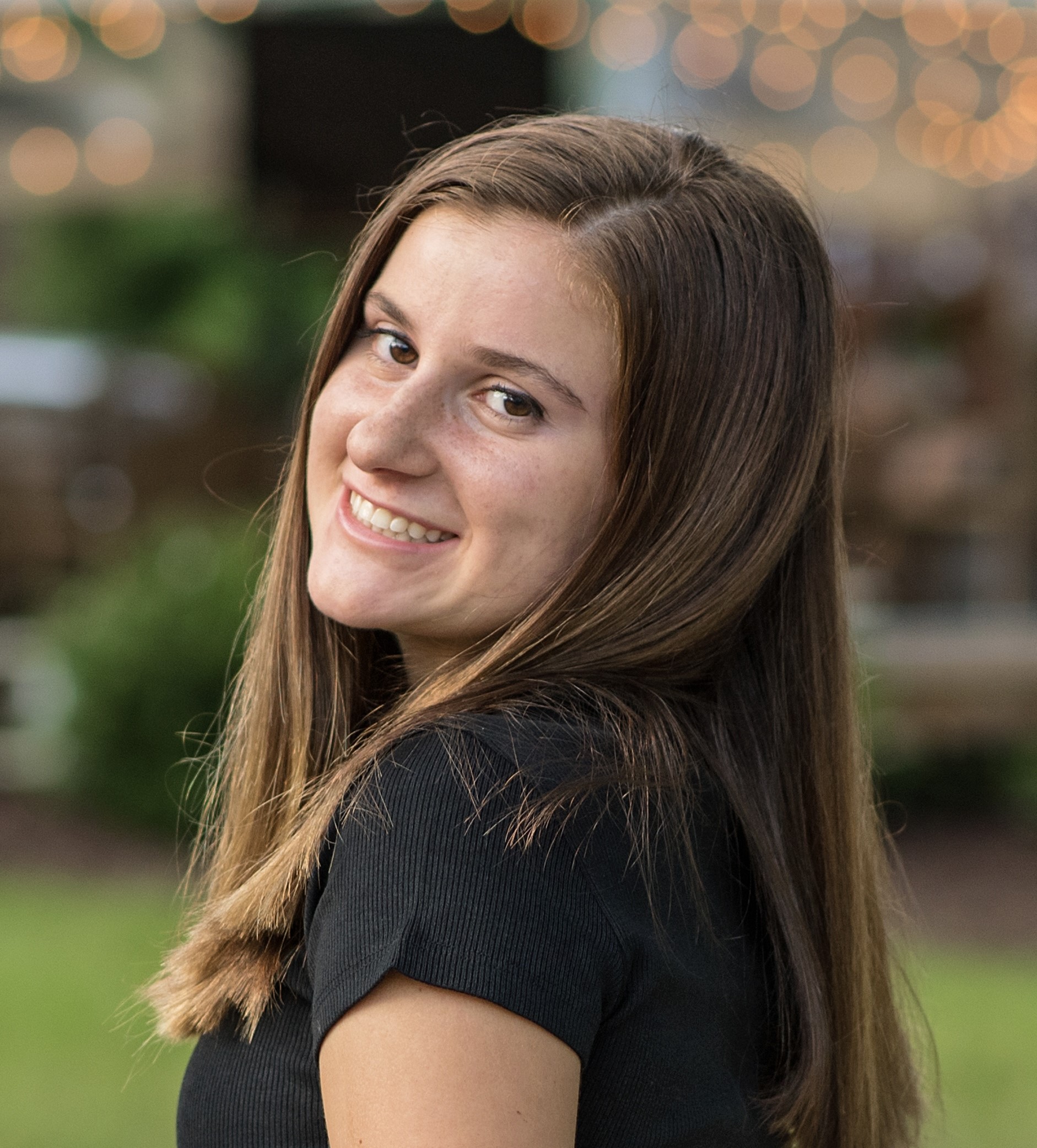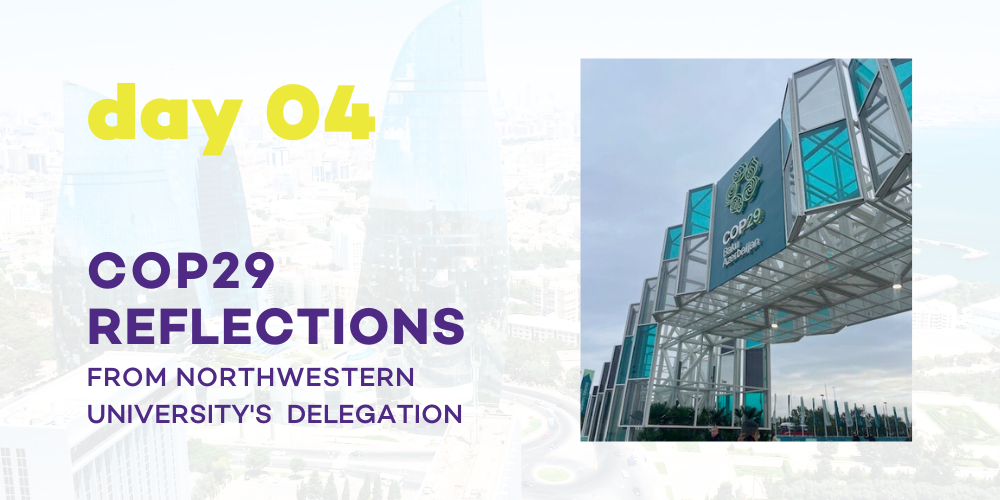Reflections from Northwestern University's COP29 Delegation: Day 4
For a fourth year, a delegation of Northwestern University students and faculty supported by the Buffett Institute is among more than 30,000 researchers, policymakers, industry leaders and activists at the world’s largest annual international treaty negotiations and climate summit, the 29th Conference of Parties (COP29) to the United Nations Framework Convention on Climate Change (UNFCCC), this year hosted in Baku, Azerbaijan. Each day, a different Northwestern delegate is blogging about their experiences and reflections. Day 4 features Talia Ginsberg, a fourth-year undergraduate majoring in global health studies and political science and minoring in data science.
Hello, Buffett! Hello, world! It’s hard to believe we’re done with day four of COP29. Stepping into the COP ecosystem brings new experiences, connections, ideas and emotions each day, and today was consistent in the only way I’ve come to know COP can be: it was different. We began the day with our morning meeting in the breakfast room at our hotel in Baku. These meetings have kept me sane and grounded throughout the week, offering stability and support before entering the craziness of the COP—shoutout my fellow Northwestern delegates!

The world’s first sustainable solar glass arch
At COP29, I am researching the representation of water in international climate governance. Is water discussed as a vital piece of climate adaptation? What facets of water are discussed? As I (and the World Health Organization (WHO), World Bank, United Nations Environment Programme (UNEP), etc.) see it, water permeates all aspects of climate change. It is not only impacted by climate change but also impacts climate change. It also simultaneously has the power to mitigate climate-related damages when managed properly and the power to exacerbate damages when neglected. Water is more than a research interest to me. It is a pathway by which we, as a world, can stand resilient to the impacts of climate change today and tomorrow.

Katie Cummins and Talia Ginsberg, Northwestern delegates to COP29
Today, I went to a panel event put on by the UN Development Coordination Office (UNDCO) about integrated solutions for ambitious climate action. To my great surprise (and joy), the panel conversation focused heavily on water and included the first-ever UN water focal point (an appointed expert and champion of water security). Our COP29 collaborative event ethnography data collection structure enabled me to study the room and discussion as a good researcher does. However, as the conversation went on, I realized I needed to go beyond the document I was typing notes in (there are only so many exclamation marks acceptable in academic data collection). At this point, I realized that two identities existed within me: the researcher and the human. The researcher was concerned with transcribing information and understanding the event space. The human, on the other hand, was excited, inspired, energized and terrified. To my researcher self, this panel was a helpful depiction of what water discussions look like in UNFCCC conferences. To my human self, this panel catalyzed my desire to act and advocate for effective and just water practices and reiterated the looming existential threat that can only be avoided by governmental and corporate action (thus, existential dread).
Of course, I am only one person. I am a researcher, human, woman, American, young person, undergraduate student. I carry all these identities with me throughout COP and throughout life. Before COP, the tension between these identities strained my ability to address climate change and action. I was preoccupied with reconciling them. Being surrounded by 32,000+ people at COP, though, has made me realize that 32,000+ people enter the Baku Stadium each day of these two weeks with these tensions within them. They have learned to leverage these tensions to see issues from multiple angles, creatively solve problems, and effectively collaborate with a wide range of people. These tensions make COP strong. With these two days we have left at COP29 (and then with the rest of my life), why would I waste energy trying to reconcile my different identities, when I can embrace them as the strength they are and put that energy towards action? I am incredibly grateful for this COP and the mentorship of Dr. Suiseeya and my PhD student peers. I cannot wait to go back to Northwestern and share this knowledge!

Talia Ginsberg is a fourth-year undergraduate at Northwestern University majoring in global health studies and political science and minoring in data science. She has supported research on the impacts of joint water and food insecurity on depression under Sera Young, Professor of Anthropology and co-lead of the Buffett Institute’s Making Water Insecurity Visible Global Working Group. Previously, Talia studied strategic sustainable development and social-ecological systems at Universidad San Francisco de Quito in Ecuador. In 2026, she will complete her master’s degree in public health at Northwestern’s Feinberg School of Medicine.

